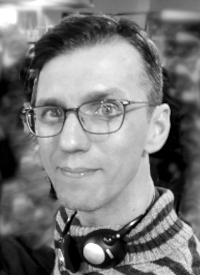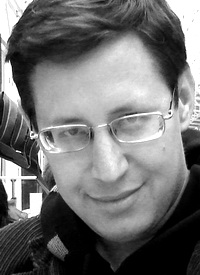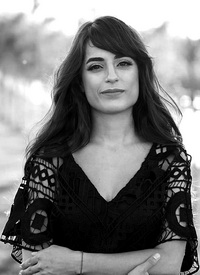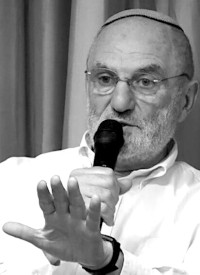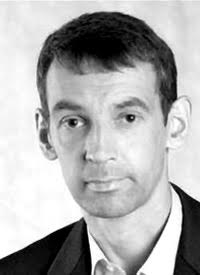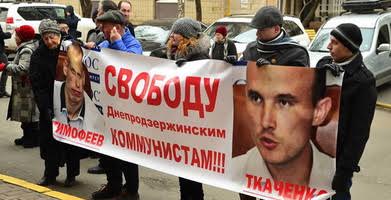
Day after day, Ukrainian media covered the trial of Nadiya Savchenko in detail. However, in the media field, practically nothing is heard about the scandalous court cases instituted in Ukraine against Ukrainian citizens on “political” charges – despite the fact that they have drawn serious criticism from renowned human rights defenders and lawyers.
“The law on ‘de-communization’ in Ukraine canceled out a number of fundamental rights and freedoms guaranteed by the European Convention for the Protection of Human Rights and Fundamental Freedoms – including freedom of expression (article 10) and freedom of speech”, – says Vladimir Chemeris, a veteran of Ukrainian human rights movement and former Soviet dissident.
As a consequence, in Ukraine there are a large number of political prisoners. It should be emphasized that the people who are often referred to as “political prisoners” by our media are representatives of right-wing organizations, arrested for the murders of other citizens or for grenade explosions near the Verkhovna Rada [parliament]. And they are accused of committing serious criminal offenses. In fact, the real political prisoners are those like journalist Ruslan Kotsaba, who simply expressed his point of view on the Internet, or communist Alexander Bondarchuk. And there are many more examples.
‘Prisoner of conscience number one’
Back in 2014, neither friends nor enemies would ever have suspected Ivano-Frankivsk journalist Ruslan Kotsaba of separatism. Kotsaba participated in the "Revolution on Granite”; during the "Orange Revolution" he led the regional organization of the "Pora" party and was the commandant of its camp; he supported "Euromaidan" and then drove through the ATO [Anti-Terrorist Operation] zone, posting materials on his blog about Ukrainian soldiers and volunteers. In the camp of the "Aydar" battalion, the journalist conducted video interviews with Nadiya Savchenko, which can now often be seen on the central TV channels.
However, on February 7, 2015, Kotsaba was arrested for posting a video criticizing the mobilization [military draft] on Facebook. The journalist was charged with violating Art. 111, p. 1 (treason) and Art. 114-1, p. 1 (obstructing lawful activities of the Armed Forces of Ukraine and other military formations) of the Criminal Code, for which he faces 5 to 15 years in prison. The Ivano-Frankivsk blogger has been detained for over a year, and during this time he has become the most famous political prisoner in the country, whose fate draws increasing attention from international human rights organizations.
Kotsaba’s trial has already received great public interest. The court in Ivano-Frankivsk heard witnesses from the military commissariat and the armed forces, which, in the opinion of the defense, failed to provide examples of how his video was the reason for the failure of mobilization and desertions. Most of the prosecution witnesses were not even familiar with Kotsaba – which did not save him from threats that were made right in the courtroom.
Each time, the journalist pointed at the political nature of his case, calling it a “mockery of Stalin's times". And his defender, well-known Kiev lawyer Tatiana Montyan, said that immediately after the sentence the defense intends to appeal to the European Court, whose decision is likely to be in favor of Kotsaba.
On February 9, the international human rights organization Amnesty International called on the Ukrainian authorities to immediately release the journalist, recognizing Ruslan Kotsaba as a prisoner of conscience.
"The position of Ruslan Kotsaba can be treated differently, but by arresting him for expressing his rights as a citizen, the Ukrainian government violates the fundamental human right to freedom of expression which Ukrainians defended on the Maidan," said Tatiana Mazur, director of Amnesty International-Ukraine.
"On March 9, we began to examine the materials of the case, and it amounts to seven volumes of ‘waste paper.’ The next hearing should be held March 17. We will watch the video and listen to the audio. The prosecutors openly delay [the proceedings] … [they] read their papers slowly and tediously. So we expect another three to five sessions for "familiarization with the materials of the case,” and then the debate and the last word. How long the judge will take to write the sentence is not known, but Kotsaba is clearly not going to be released before the verdict, and it’s unknown what sentence the presidential administration told the court to give," – Tatiana Montyan told “Strana.”
Recently, she spoke in the European Parliament, acquainting European politicians with the scandalous details of the case, which now discredits the Ukrainian authorities at the international level.
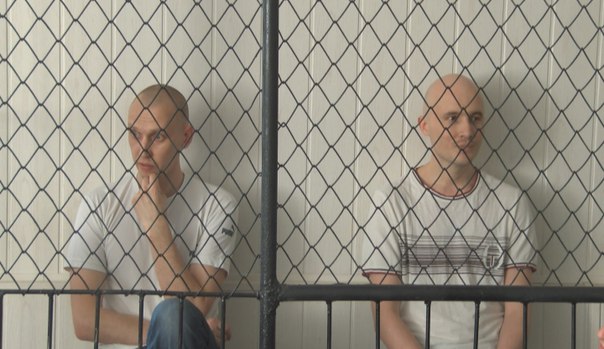
‘A standard kit of separatists’
Dneprodzerzhinsk Communists Sergei Tkachenko and Denis Timofeev have been imprisoned since September 1, 2014. Their arrest came as a surprise to comrades in their party organization.
According to them, Sergei and Denis did not participate in actions by the supporters of the "Russian world," but were actively engaged in protecting the rights of workers at the Dzerzhinsky metallurgical plant and other enterprises in the city, making a lot of enemies in the process. In addition, the Communists’ detention coincided with a political campaign against the Communist Party of Ukraine (KPU), which was accused of aiding terrorists. According to the Communist Party, this was done to prevent the participation of [KPU leader Piotr] Simonenko’s party in the elections, and to find an excuse to ban it.
"In 2014, the Communist Party was the only parliamentary party which openly opposed the outbreak of war in the Donbass. First [Oleksandr] Turchynov, and then [current Ukrainian President Petro] Poroshenko gave the order to assemble ‘facts’ for its banning,” Andrei Bondarenko, secretary of the Dnipropetrovsk Regional Committee of the Communist Party, told “Strana.”
"As a result of the pressure, many of our comrades suffered. Among them were Sergei Tkachenko and Denis Timofeev, who, during a search on September 1, 2014, had ‘a standard kit of separatists’ planted on them: a dozen ‘Novorossiya’ newspapers, a grenade and TNT block. They are accused of calling for the violation of Ukraine’s territorial integrity and possession of explosives,” – Bondarenko said.
The Communist Party explains that in the summer of 2014, local members of ultra-right organizations openly walked around brandishing weapons in Dneprodzerzhinsk, home of former Right Sector leader Dmitry Yarosh, and the city is now considered his political fiefdom. However, law enforcement never questioned them. In addition, comrades Tkachenko and Timofeev suspect the judge of bias and unfair treatment of their "political" case.
"It’s enough to attend one hearing to understand that the judge of Zavadski District Court of Dneprodzerzhinsk, Tatyana Ivchenko, actually stand on the side of the prosecution,” said the secretary of the Dnipropetrovsk Regional Committee of the Communist Party. “All the ‘witnesses’ for the prosecution are members or supporters of the far right (Right Sector, AutoMaidan, etc.), or random people who hope that law enforcement agencies will drop other charges against them. To check their whereabouts at that time would be very easy – for example, by mobile phone records. But the judge consistently rejects the defense motions. Apparently, if they are confronted, the witnesses will crumble".
The Communists’ lawyers were able to establish which military unit the grenades belonged to – and it turned out that there was no theft of weapons reported. There were no fingerprints of the defendants or their relatives on the grenades and explosives. They’re still charged with possession of "Novorossiya" newspapers, but Tkachenko and Timofeev claim that the newspapers were planted, and their content is contrary to their own views and the position of the Communist Party.
Examination of the newspaper did not reveal any illegal calls in the issue, and experts confirmed these findings in court. However, the prosecution made a request for re-examination, which was granted. This means that the two Communists, who have spent 18 months in jail, will remain in custody in the meantime.
"Without real evidence, the prosecution, with the assistance of the judge, is deliberately delaying the process. They are scared to release the guys because it will be absolutely clear to everyone that the case against Tkachenko and Timofeev was fabricated and political,” – said Bondarenko.
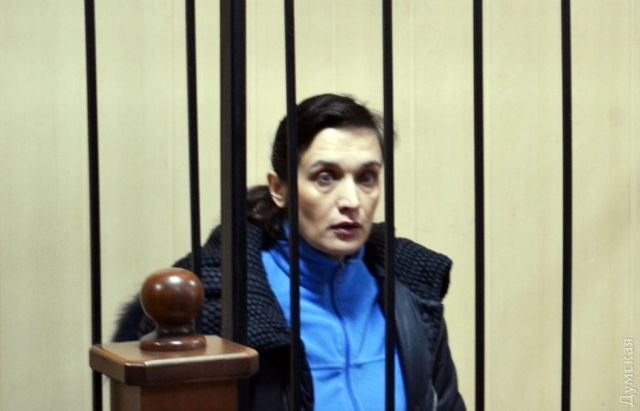
‘Patriot’ case
Odessa is one of the champions in the number of cases with political overtones – since the tragic events at the House of Trade Unions on May 2, 2014. But even against this backdrop, one case stands out: that of a pregnant journalist, who, despite her difficult health conditions, continues to be held in pre-trial detention.
Elena Glischinskaya, director of Odessa television channel "New Wave," was arrested on April 29, 2015, and taken into custody on charges of separatism and treason. Hers is part of the case of the "People's Council of Bessarabia”, whose supporters are accused of intending to separate the Odessa region from southern Ukraine.
In particular, according to the indictment presented at the hearing of the Primorsky Court of Odessa and published by the online edition of "Timer," "New Wave" spread views about "the national-cultural identity of the area, covered spontaneous actions against the mobilization by local residents, and also raised the issue of strengthening the role of local self-government".
Such extremely vague allegations were the basis for the arrest of this mother of two minor children. And a few months later, the journalist became pregnant, with serious complications. On October 21, when Elena Glischinskaya suffered a hemorrhage, doctors recommended emergency hospitalization to prevent miscarriage, but the journalist was left in jail. A few weeks later, after another hemorrhage, Glischinskaya was diagnosed with a “detached placenta”, and prescribed bed rest. But this did not affect the position of the prosecution and the court.
"Elena is in jail. Recently she was again taken to the hospital, but after one and a half days was returned to jail. As for the prospects of her release – when it will happen, probably nobody knows. In theory, according to the Code of Criminal Procedure, she should in any case be freed from punishment, as a mother with children, after a year of detention in remand prison. And therefore the position of the Security Service of Ukraine (SBU), which has kept her in custody for nearly a year to extract confessions against one of the current MPs, looks especially cynical,” – "Timer" journalist Yuri Tkachev told “Strana.”
The absurdity of the hard attitude towards the pregnant journalist is highlighted by the fact that Odessa political activists well remember her active role in rallies of the early 1990s, which were held in support of Ukraine's independence. Ironically, the country for which Glischinskaya struggled "thanked" her with a prison cell.
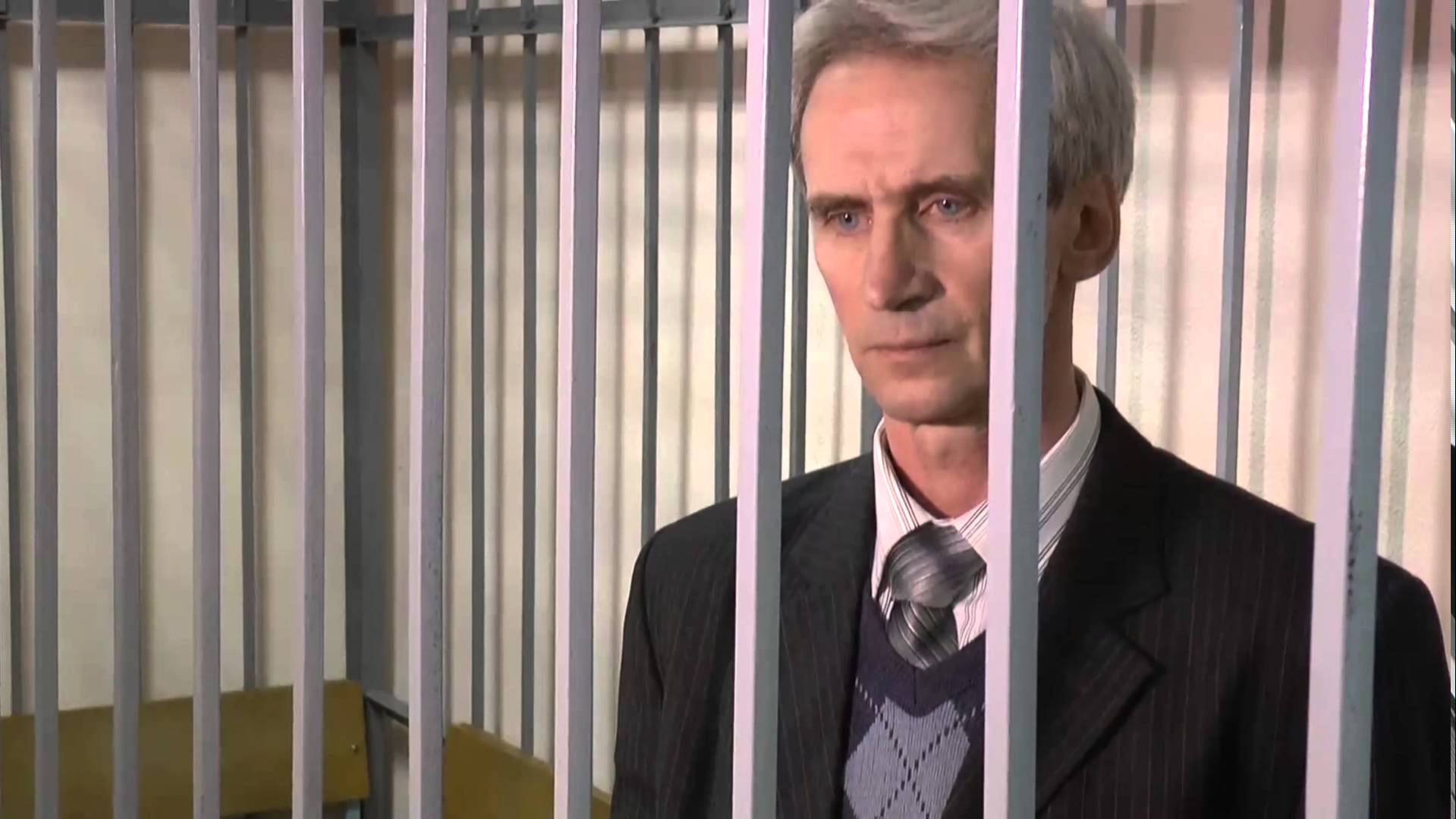
‘Indirect calls’
Alexander Bondarchuk, MP of the 3rd and 4th Verkhovna Rada convocations from the Communist Party and editor-in-chief of the newspaper “Working Class,” was taken into custody on March 18, 2015, by decision of the Pechersk District Court.
The former leading engineer-constructor at Antonov Aeronautical Scientific-Technical Complex (ASTC) was known in his parliamentary days for his old green "Muscovite,” which stood out parked near the other deputies’ cars. For many years, as head of the All-Ukrainian Union of Workers, Bondarchuk actively participated in the organization of miners' strikes and marches.
The basis for opening a criminal case and the subsequent arrest of the former People's Deputy was a reprint of two articles published on the website of "Novorossiya”.
Bondarchuk has been charged with anti-state and separatist activities in accordance with art. 110, p. 1 of the Criminal Code, which can be punished by 3 to 5 years in prison. At the same time, according to Bondarchuk’s comrades, the prosecution of the journalist and opposition politician was begun at the initiative of Andriy Pavlovsky, parliamentary deputy of the Yulia Tymoshenko Bloc.
"The article was accompanied by a reference to its source – that is, in accordance with Article 43 of the Law of Ukraine, the editor of ‘Working Class’ does not assume responsibility for it. In addition, at the time reprints from the ‘Novorossiya’ site had not been banned. An expert opinion pointed out that the reprint ‘presents indirect calls for territorial change, but Art. 110 doesn’t contain the concept of indirect calls,’” – Deputy Editor-in-Chief Vitalina Butkalyuk commented to “Strana”.
The Communist’s lawyer was allowed to examine the materials in the case only in August 2015, five months after his rights as a defender entered into force – and then only after the court ordered the prosecutor to initiate criminal proceedings against SBU employees for violation of Alexander Bondarchuk’s right to defense.
Bondarchuk’s advocate immediately pointed to facts which, in his opinion, demonstrated misconduct by the prosecution. The lawyer noted that the examination of the published newspaper articles, which should be conducted by an independent body, was carried out by the SBU-controlled Ukrainian Scientific-Research Institute of special equipment and forensic examinations. And this is a violation of the Code of Criminal Procedure.
At the same time, the expert, who was asked to clarify the definition of "indirect calls,” failed to appear at court hearings four times. To top it off, it turned out that Bondarchuk’s proceedings were not included in the Unified Register of pre-trial investigations. That is, in the opinion of the defense, this case simply did not exist in terms of the legislation of Ukraine, and the former deputy was unlawfully deprived of his liberty for nearly nine months.
Bondarchuk’s case caused a scandal, and on December 28, 2015, the judge was forced to release him from detention, appointing a new independent expert to examine the charges. At the same time, the Communist’s advocate believes that the charges against him contradict articles 5, 6 and 13 of the European Convention for the Protection of Human Rights and Fundamental Freedoms, articles 15 and 34 of the Ukrainian Constitution, article 18 of the Law of Ukraine "On the printed mass media (the press) in Ukraine" – and the case against the editor-in-chief of the newspaper "Working Class” is an example of infringement of freedom of speech and political persecution.
European Court may cancel convictions
Describing the "political cases" that have been instituted over the past two years in “post-Maidan” Ukraine, lawyers drew attention to a number of common points. Among them – an obvious weakness of the evidence base, numerous violations by the prosecution, which usually ignores the court, as well as a tendency to delay consideration of the cases – perhaps in anticipation of instructions from the authorities.
Human rights activists point out that, in the event of a conviction, the cases are likely to be successfully challenged in the European courts. And it seriously undermines the credibility not only of the judicial system of Ukraine, but also of the country's political system, when such charges and cases are possible.
"A European Court decision, in which it finds a violation of human rights by the state, usually involves financial compensation that the state must pay the victim. Also, such decisions may contain recommendations for changes to national legislation, if the violation of civil rights was based on the laws of the state. Upon receiving the court's decision, where violations of civil rights are found, the person may apply to the national courts and seek a review of court cases in which he was convicted.
“These are legal consequences. But there are also moral ones – based on these decisions, human rights activists and the opposition get another good reason to launch a campaign against the illegal actions of the authorities. However, this is only possible when there are media, politicians and human rights defenders in the state who are not afraid of being accused of working for ‘the enemy’, or that the European Court carries out Putin's orders," – Vladimir Chemeris told “Strana.”
By Andriy Manchuk
Translated by Greg Butterfield
-
Історія
Африка и немцы - история колонизации Намибии
Илья Деревянко история колонизации Намибии>> -
Економіка
Уолл-стрит рассчитывает на прибыли от войны
Илай Клифтон Спрос растет>> -
Антифашизм
Комплекс Бандеры. Фашисты: история, функции, сети
Junge Welt Против ревизионизма>> -
Історія
«Красная скала». Камни истории и флаги войны
Андрій Манчук Создатели конфликта>>

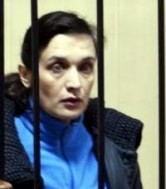
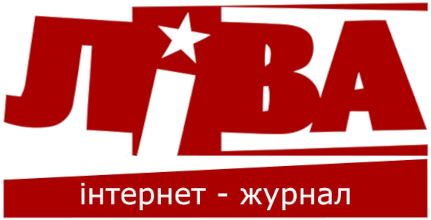










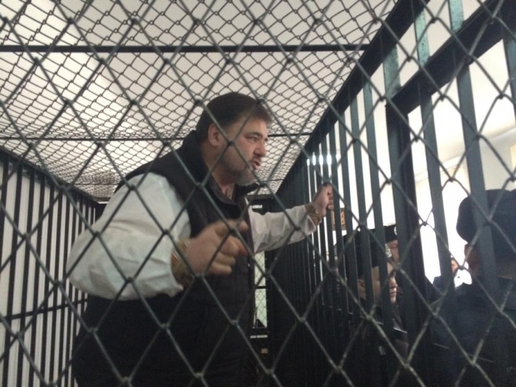
 RSS
RSS
